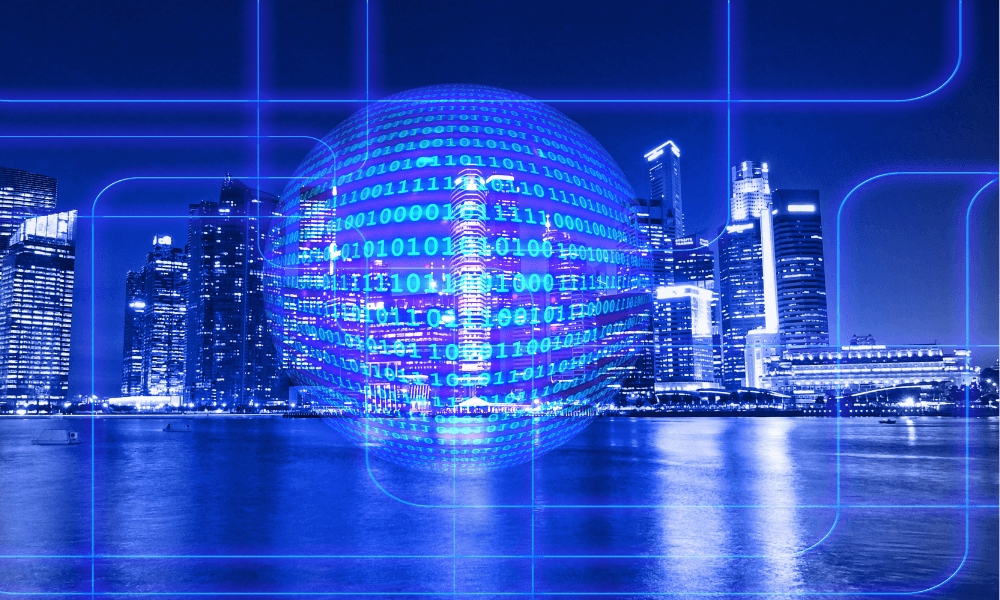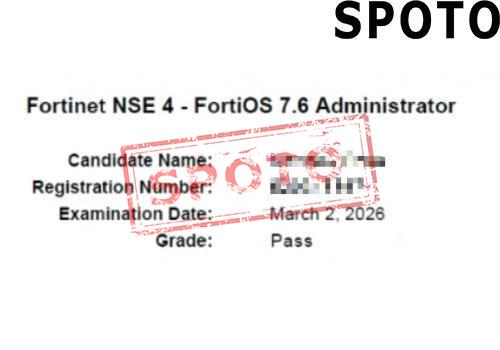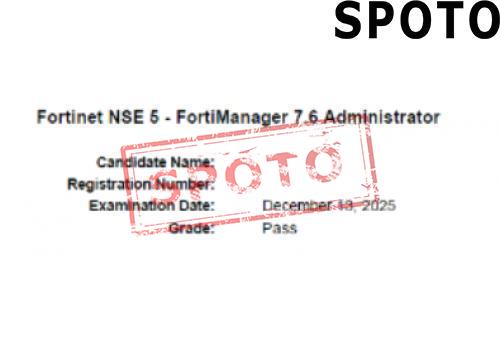
Table of Contents
The digital age has driven unprecedented growth in the field of information technology (IT). Key technologies like cloud computing and cybersecurity are now cornerstones of the modern economy.
Cloud computing's flexibility, scalability, and cost-effectiveness have made it a core part of enterprise IT infrastructure. According to Gartner, the global public cloud market reached $266 billion in 2020 and is expected to grow to $6 trillion by 2026. This reflects not only the pursuit of efficient computing, but cloud's critical role in driving innovation.
Cybersecurity, protecting information from attacks, is increasingly important as cyber threats become more sophisticated. As cyberattacks escalate, so does the need for cybersecurity experts. Cybersecurity Ventures predicts the global cybersecurity market will reach $300 billion by 2026, underscoring its significance.
For those interested in IT careers, cloud computing and cybersecurity are compelling paths. This blog will explore these fields' characteristics, market demand, and career development options to guide newcomers' informed decisions.
Ⅰ. Cloud Computing Overview
Cloud computing is a technology that provides computing resources, such as servers, storage, databases, networks, and software, to users over the Internet as services. It allows users to access these resources on-demand without the need for expensive hardware investments and maintenance. The core benefits of cloud computing are its flexibility, scalability, cost-effectiveness, and ability to respond quickly to market changes.
1.1 The Concept of Cloud Computing
The concept of cloud computing is based on the idea of providing computing resources over the Internet, similar to how water and electricity are provided. Users can increase or decrease the amount of resources they use at any time according to their needs, which is a flexibility unmatched by traditional IT infrastructures. Another important concept of cloud computing is "pay-as-you-go," where users only pay for the resources they actually use, optimizing costs.
1.2 The Main Service Models of Cloud Computing
- Infrastructure-as-a-Service (IaaS): Provides virtualized computing resources such as servers, storage, and networking. Users can build and deploy their own applications on top of this.
- Platform-as-a-Service (PaaS): Provides a platform for application development and runtime, including operating systems, databases, and development tools. PaaS allows developers to focus on application development without having to manage the underlying hardware and platform.
- Software-as-a-Service (SaaS): Provides access to applications over the Internet, and users do not need to install and maintain the software, but only need to access the software services through the network.
1.3 Advantages of Cloud Computing
The main advantages of cloud computing are its ability to provide businesses with fast, flexible, and cost-effective computing resources. Enterprises can quickly deploy new services and respond quickly to market changes while reducing IT operating costs. According to RightScale's 2020 State of Cloud Report, 85% of enterprises have adopted a multi-cloud strategy to leverage the strengths of different cloud service providers.
II. Cybersecurity Overview
Cybersecurity is the practice of protecting organizations, individuals, and cyber assets from attacks, damage, or unauthorized access. As cyber threats continue to evolve and increase, cybersecurity has become an integral part of businesses and individuals around the world.
2.1 The Concept of Cybersecurity
Cybersecurity involves a range of technologies and strategies designed to protect networks, devices, data, and users from a variety of cyber threats, such as hacking, malware, data breaches, and other forms of cybercrime. It includes three core principles: confidentiality, integrity, and availability. These principles ensure that information is protected from unauthorized access, remains accurate, and is available at all times.
2.2 Main Areas of Cybersecurity
- Risk assessment and management: Identify, assess, and prioritize cybersecurity risks.
- Threat detection and response: Monitor network activity, detect potential threats, and respond quickly to mitigate damage.
- Data protection: Measures such as encryption and access control to protect sensitive data from leakage.
- Identity and access management: Ensure that only authorized users can access network resources.
- Cybersecurity governance: Develop policies and procedures to guide the implementation and management of cybersecurity.
2.3 The Importance of Cybersecurity
The importance of cybersecurity is not only to protect data and systems from loss, but also to maintain the trust of businesses and users. As cyberattacks become more sophisticated, the need for cybersecurity experts grows. Businesses require cybersecurity professionals to design and implement security strategies that protect their digital assets from threats.
III. Comparing Cloud Computing and Cybersecurity
For individuals interested in entering the IT field, the choice between pursuing cloud computing or cybersecurity can depend on personal interests, career goals, and an assessment of market demand. Here's a more detailed comparison of the two areas to help guide the decision-making process:
3.1 Interests and Skill Tendencies
- Cloud computing is well-suited for those who enjoy the technical aspects of building, managing, and optimizing computing resources. This includes working with servers, storage, networking, and the various cloud platforms and technologies like containerization and microservices. Problem-solving skills and a keen interest in the infrastructure side of IT are essential.
- Cybersecurity, on the other hand, attracts those interested in protecting systems and data from various threats. This involves researching vulnerabilities, developing protective measures, and analyzing complex security challenges. Strong analytical and problem-solving skills, as well as an aptitude for security protocols and encryption techniques, are highly valued in this field.
3.2 Career Development
- In cloud computing, common career paths include cloud architects, cloud service engineers, and cloud system administrators. These roles require a deep understanding of cloud platforms (e.g., AWS, Azure, Google Cloud) and the ability to design, implement, and manage cloud-based solutions.
- Cybersecurity career paths include cybersecurity analysts, security engineers, penetration testers, and security managers. These roles focus on identifying, mitigating, and responding to cyber threats, as well as developing and enforcing security policies and procedures.
3.3 Learning Paths
- The study of cloud computing typically involves mastering the core concepts and features of major cloud platforms, as well as related technologies like containerization, microservices, and cloud-native application development. Understanding cloud architecture, deployment, and management is essential.
- Cybersecurity education focuses on security protocols, encryption methods, risk assessment, and the development of comprehensive security strategies. This includes studying network security, vulnerability analysis, incident response, and regulatory compliance.
3.4 Certifications and Qualifications
- The cloud computing field has a wide range of professional certifications, such as AWS Certified Solutions Architect, Microsoft Certified: Azure Administrator, and Google Cloud Certified Professional Cloud Architect. These validate an individual's expertise in specific cloud platforms.
- Cybersecurity certifications include CompTIA Security+, Certified Ethical Hacker (CEH), Certified Information Systems Security Professional (CISSP), and many others. These certifications demonstrate an individual's knowledge and skills in various aspects of cybersecurity.

3.5 Nature of Work
- Cloud computing professionals typically focus on developing, deploying, and maintaining cloud-based services and applications. This involves tasks like provisioning resources, automating deployments, and optimizing cloud infrastructure for performance and cost-effectiveness.
- Cybersecurity professionals are primarily responsible for monitoring, auditing, and protecting an organization's IT systems and data from various cyber threats. This includes implementing security controls, conducting risk assessments, responding to incidents, and ensuring compliance with relevant regulations.
In summary, the choice between cloud computing and cybersecurity depends on your personal interests, career aspirations, and the assessment of the market demand for each field. Both areas offer rewarding and in-demand career opportunities within the broader IT industry.
Conclusion
In summary, when choosing between cloud computing and cybersecurity, novice IT professionals should carefully consider their personal interests, skills, and aptitudes - are you drawn to the technical aspects of building and managing computing resources, or do you prefer the challenge of protecting systems and data from cyber threats? Additionally, analyze the current and projected market demand for each field, as well as the specific career development paths and the level of risk tolerance required. Importantly, regardless of the field chosen, continuous learning and adaptation to rapid technological changes are necessary to succeed in both cloud computing and cybersecurity, which are high-growth, in-demand areas that offer rewarding and diverse career opportunities within the broader IT industry. Ultimately, the choice should be based on aligning your career goals and personal strengths with the unique requirements and opportunities presented by each field.










